
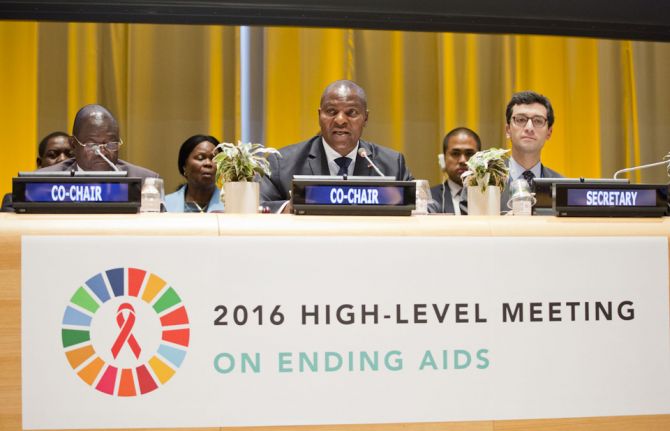
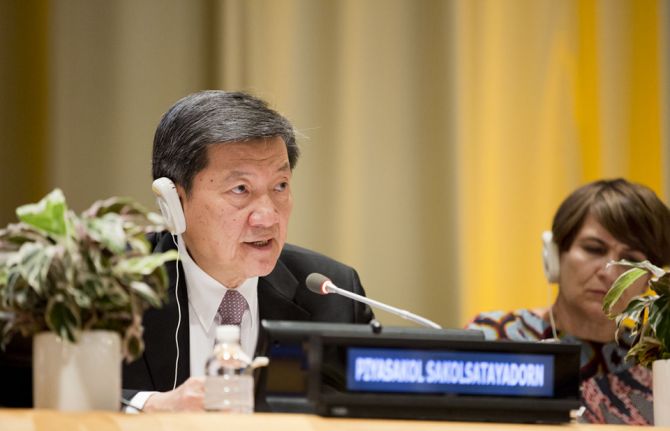
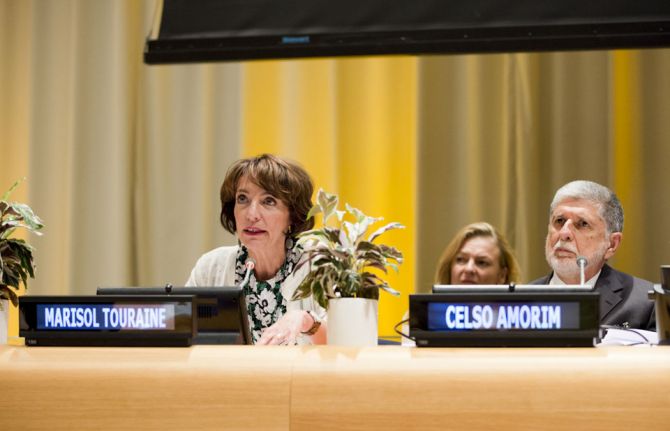
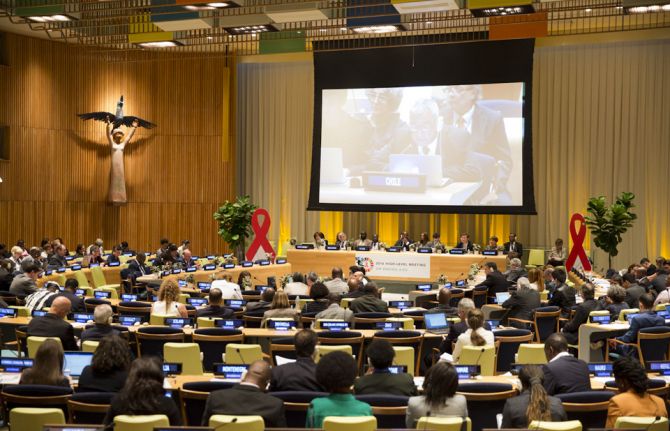
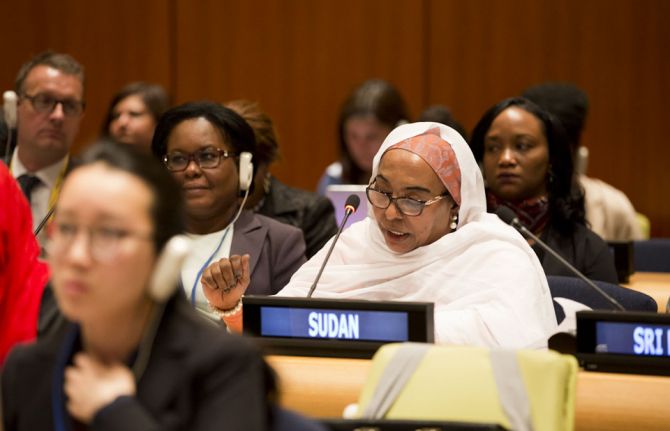
Update
Leaving no one behind: ending stigma and discrimination through social justice and inclusive societies
09 June 2016
09 June 2016 09 June 2016The AIDS epidemic will not be ended without efforts to end discrimination, respond to exclusion and advance social justice, according to a panel meeting held on 9 June during the United Nations General Assembly High-Level Meeting on Ending AIDS, taking place in New York, United States of America, from 8 to 10 June.
The panel, entitled “Leaving no one behind: ending stigma and discrimination through social justice and inclusive societies,” stressed that upholding the values of inclusion and social justice is fundamental to creating societies that advance dignity and share the benefit of wealth and health for all. It called for seizing the unparalleled opportunity offered by the 2030 Agenda for Sustainable Development and the newly adopted Political Declaration on HIV and AIDS to realize the vision of ending AIDS as a public health threat by 2030 in a manner grounded in the principles of equality, inclusion and respect for the rule of law.
The panel highlighted the efforts of civil society in demanding protection against stigma and discrimination and calling for justice, dignity and access to health services for all. Yet, panellist and speakers recognized that across the world, women and girls, young people, migrants, sex workers, men who have sex with men, people who inject drugs, transgender people and prisoners continue to be left behind because of discriminatory and punitive laws, policies and practices. Participants also expressed concern about restrictive legal and policy environments that hinder the work of civil society organizations in supporting the HIV response.
The panel called for moving from recognition of these challenges to actions for addressing them. It noted that an epidemic such as AIDS can be transformed into a pathfinder for addressing structural inequalities and vulnerabilities provided that all stakeholders translate their commitments to leaving no one behind into concrete programmes and funding for human rights.
The panel concluded with an urgent call for action on the following: ending discrimination in health care, education and the workplace; addressing intellectual property regimes that prevent millions of people from accessing life-saving HIV, hepatitis and other treatments; removing punitive laws that block effective responses for people living with HIV and other key populations; investing in human rights programmes and efforts by civil society; and setting clear goals with targets and indicators on ending discrimination, repealing punitive laws and advancing social justice.
Quotes
"There will be no end of AIDS without addressing the laws, policies and practices that make women, young people, prisoners, sex workers, men who have sex with men and people who use drugs vulnerable to HIV and limit their access to health services. Now is the time to expand human rights programmes that work and have proved successful in addressing discrimination in different contexts. More broadly, there can be no achievement of the health targets in Sustainable Development Goal (SDG) 3 without commitment to SDGs 5, 10 and 16 and the vision of eliminating inequalities and building inclusive societies.”
“Decriminalization of drug use, same-sex relationships and sex work is a matter of urgency. Instead of criminalizing, we should promote protective laws, policies and practices. This will make ending the AIDS epidemic a lot easier!”
“Gender inequality remains the most pervasive form of inequality around the world. Women and girls face extraordinary, and often intersecting, forms of discrimination. This is especially true for women living with HIV, migrants and refugee women, adolescent girls, women who use drugs or are sex workers, and lesbian, bisexual and transgender women and men. This is why in our work we must always aim to reach the last woman.”



